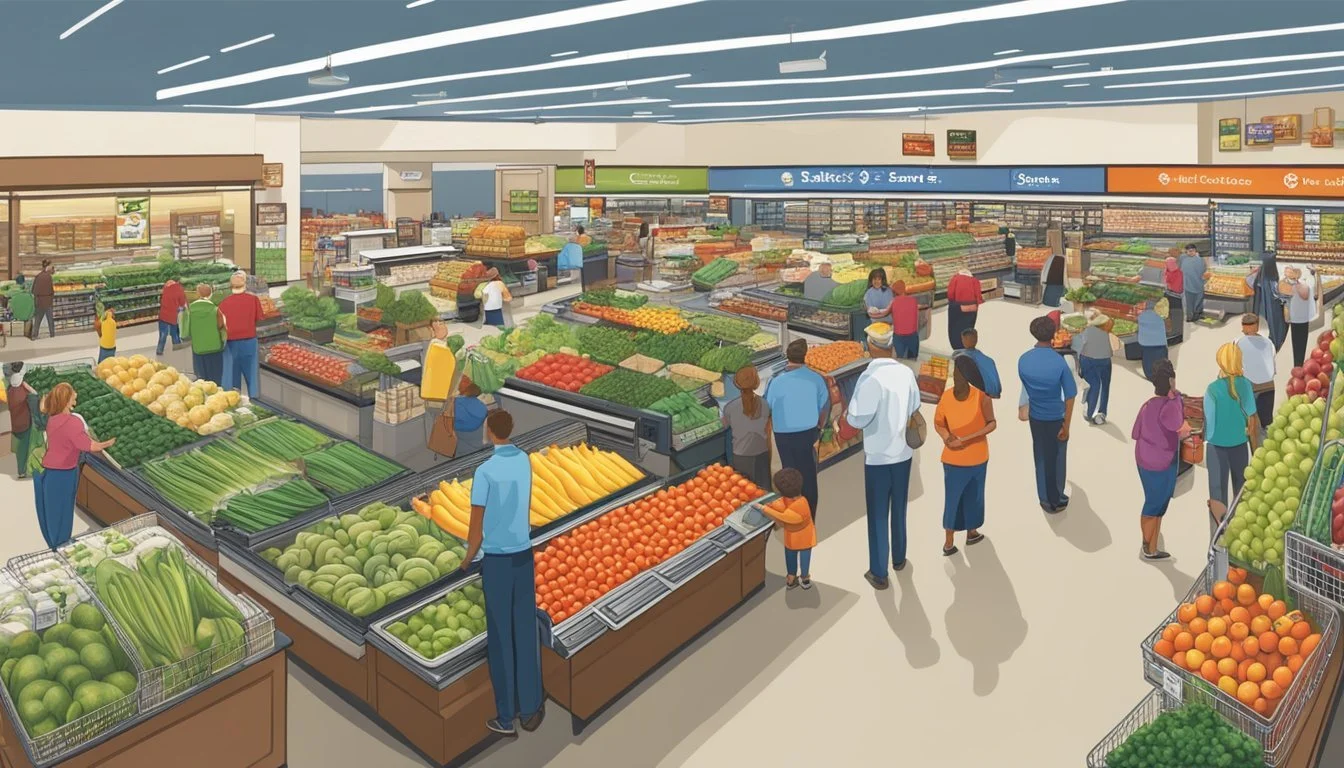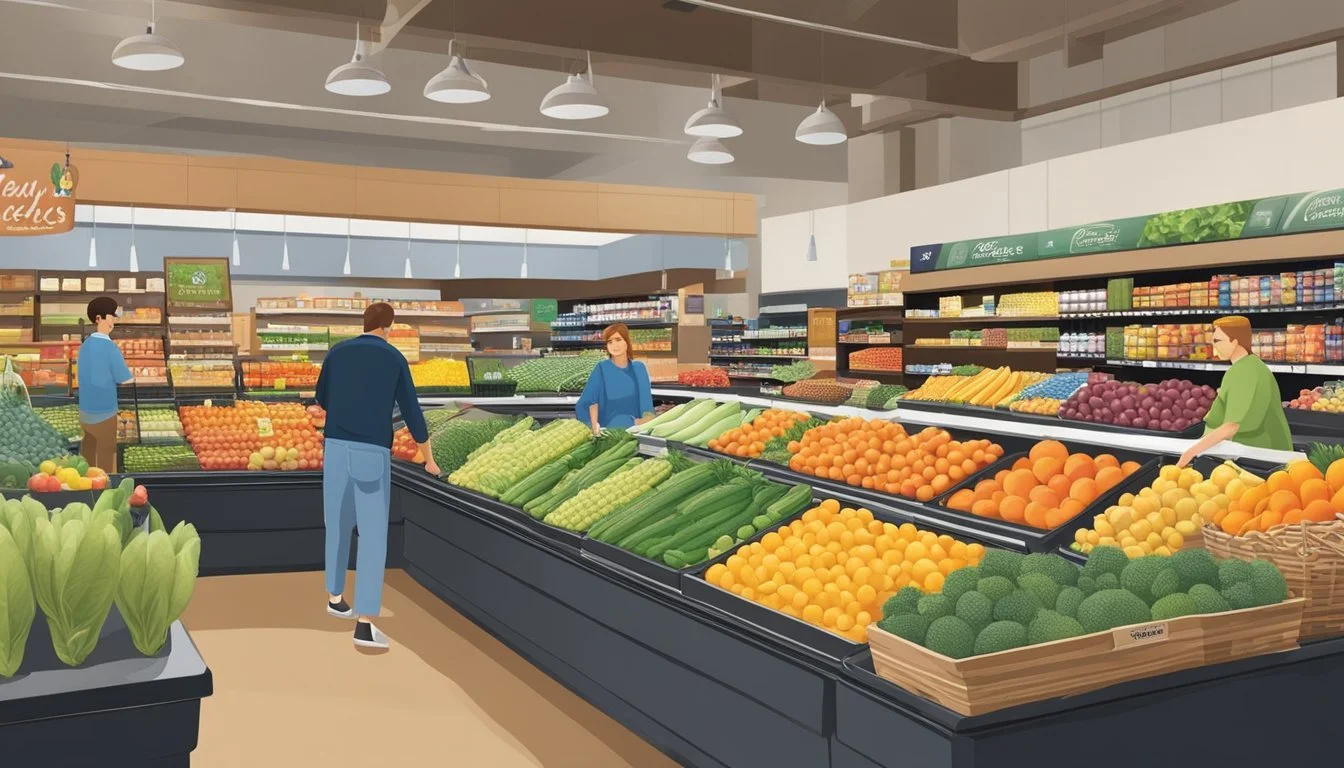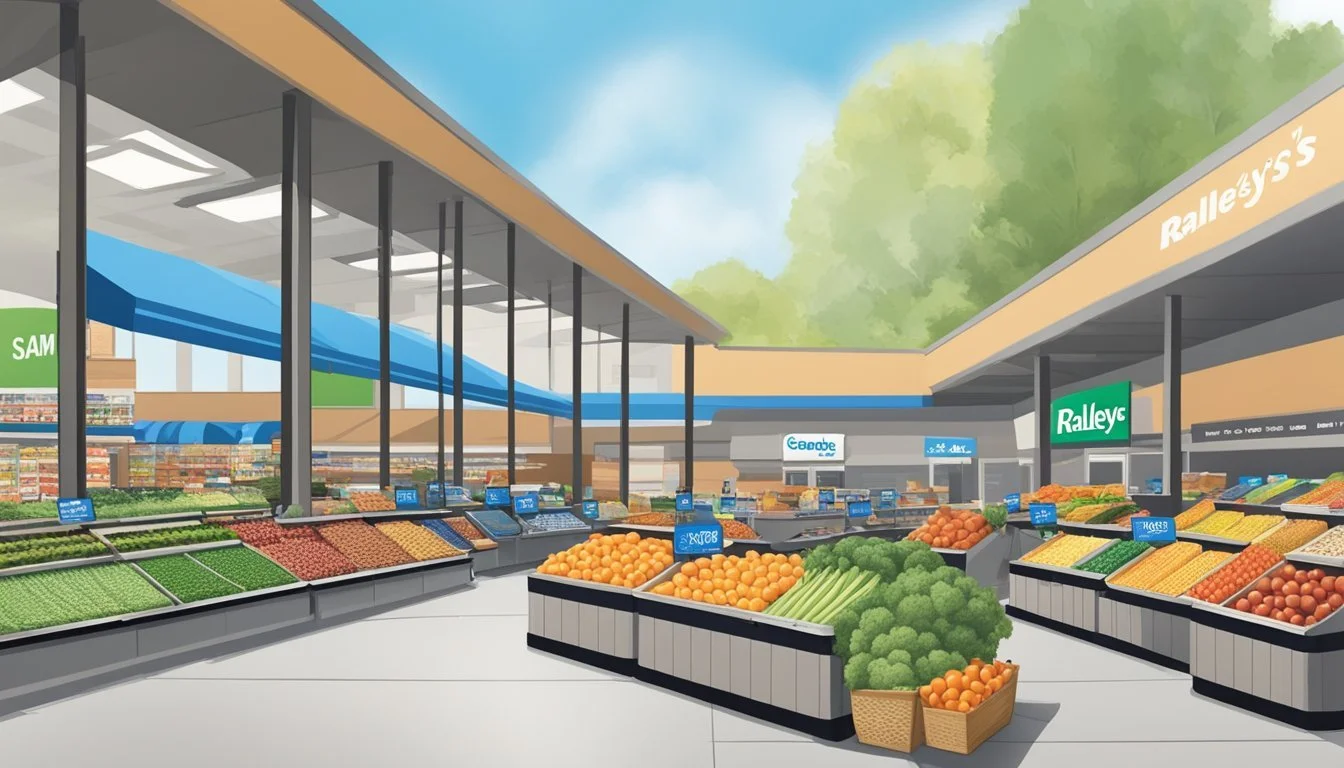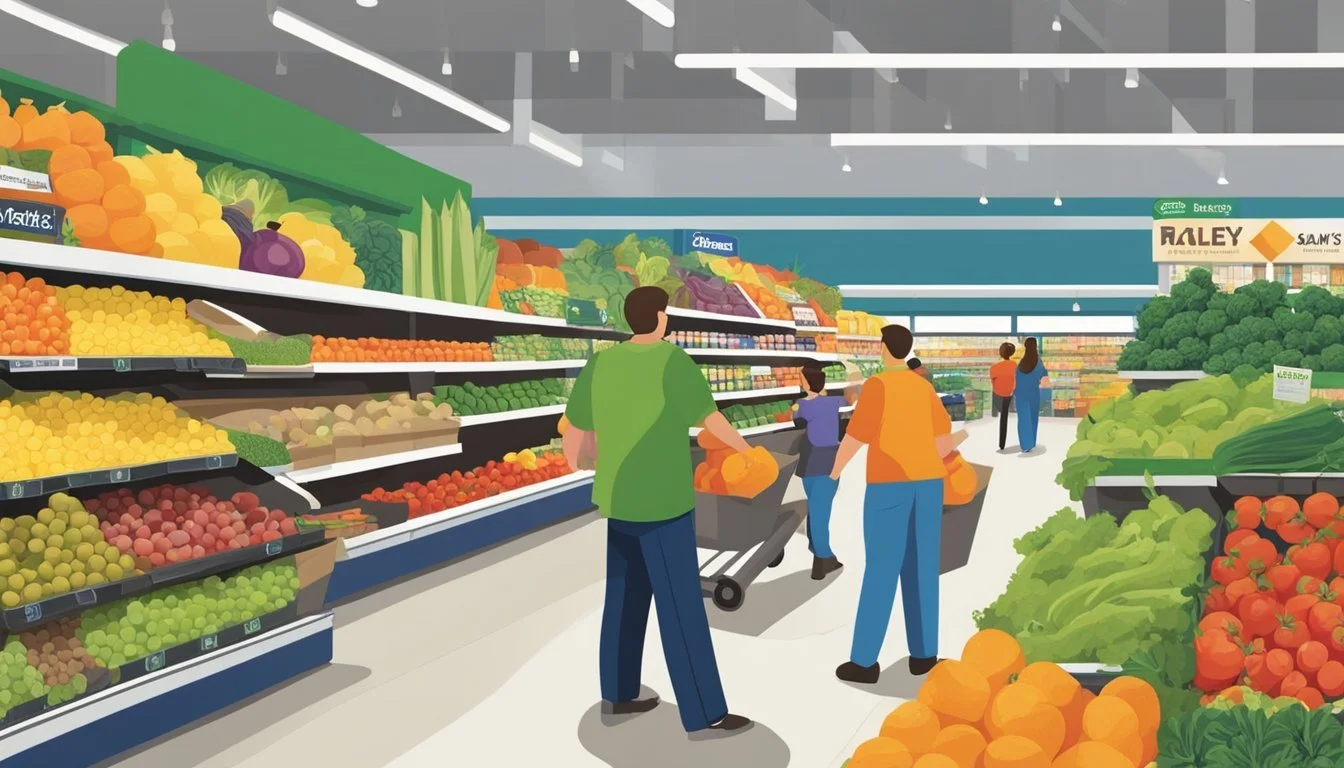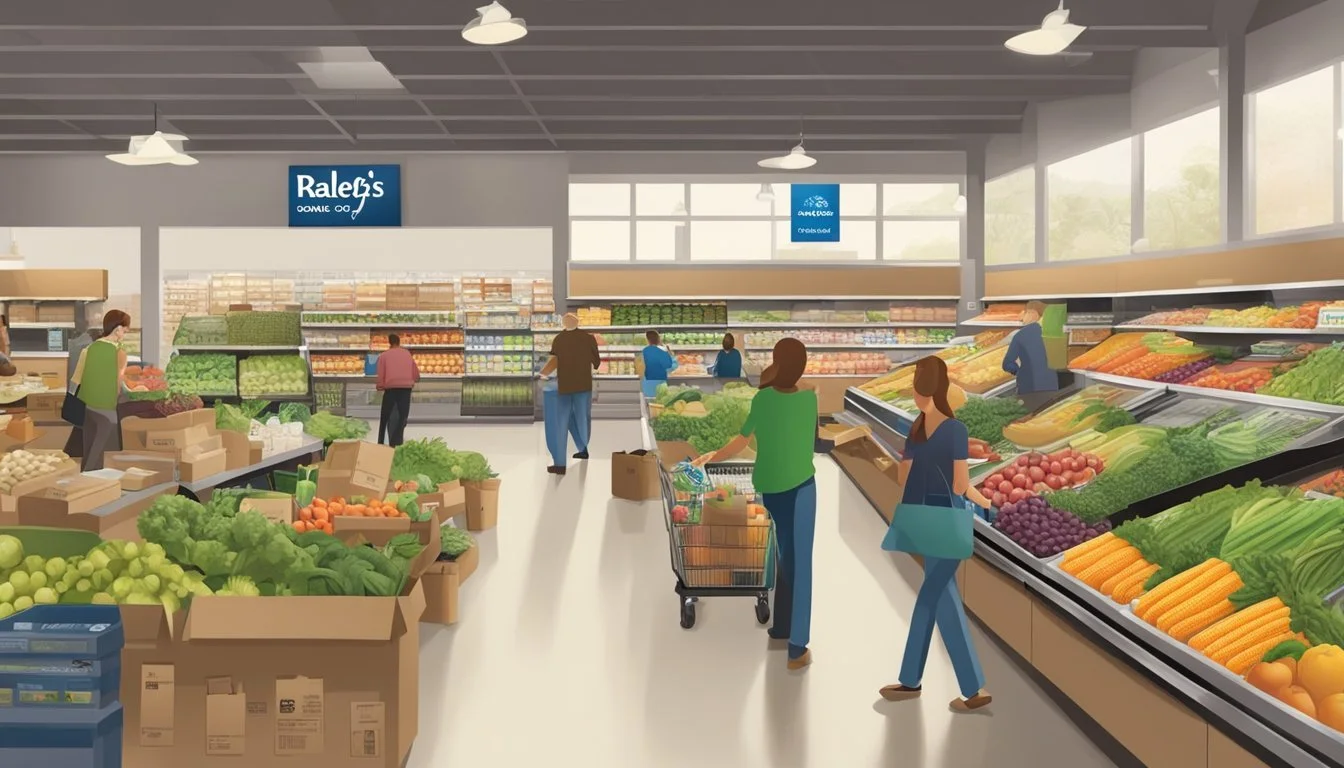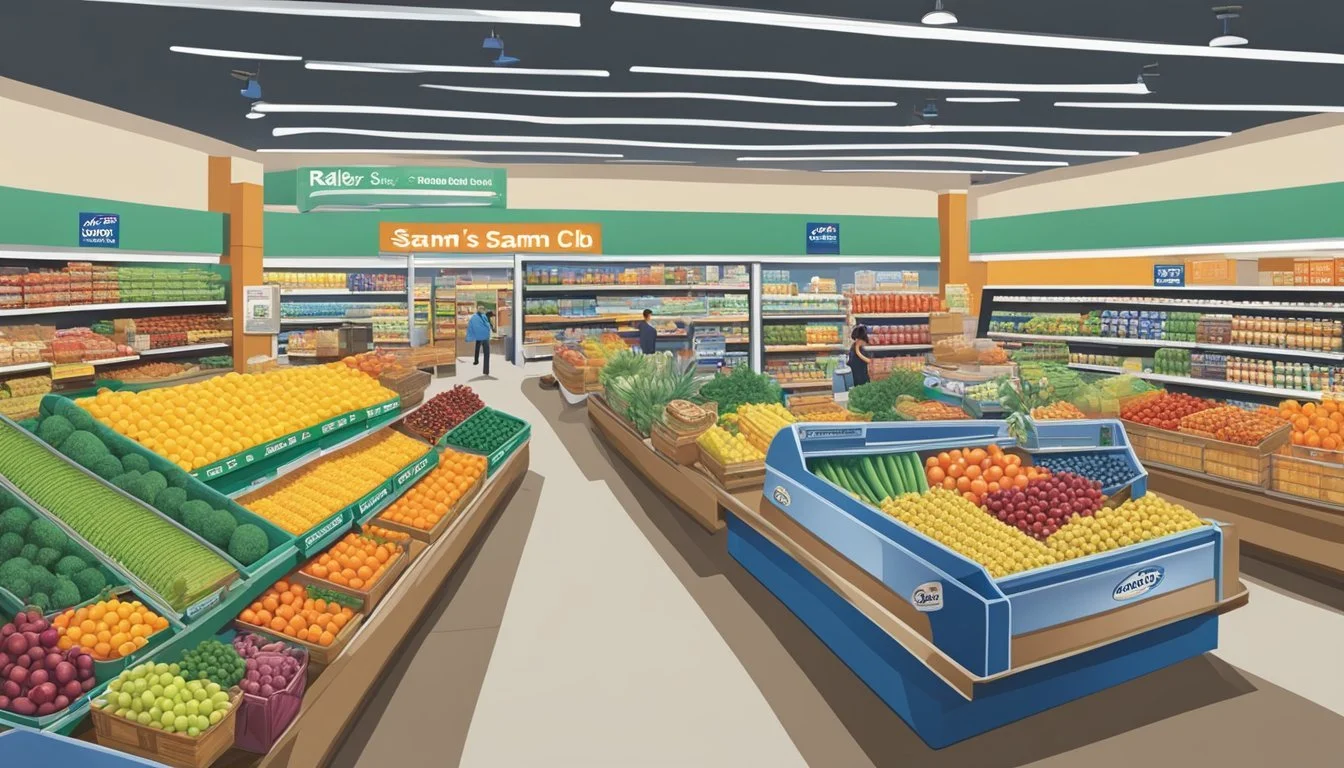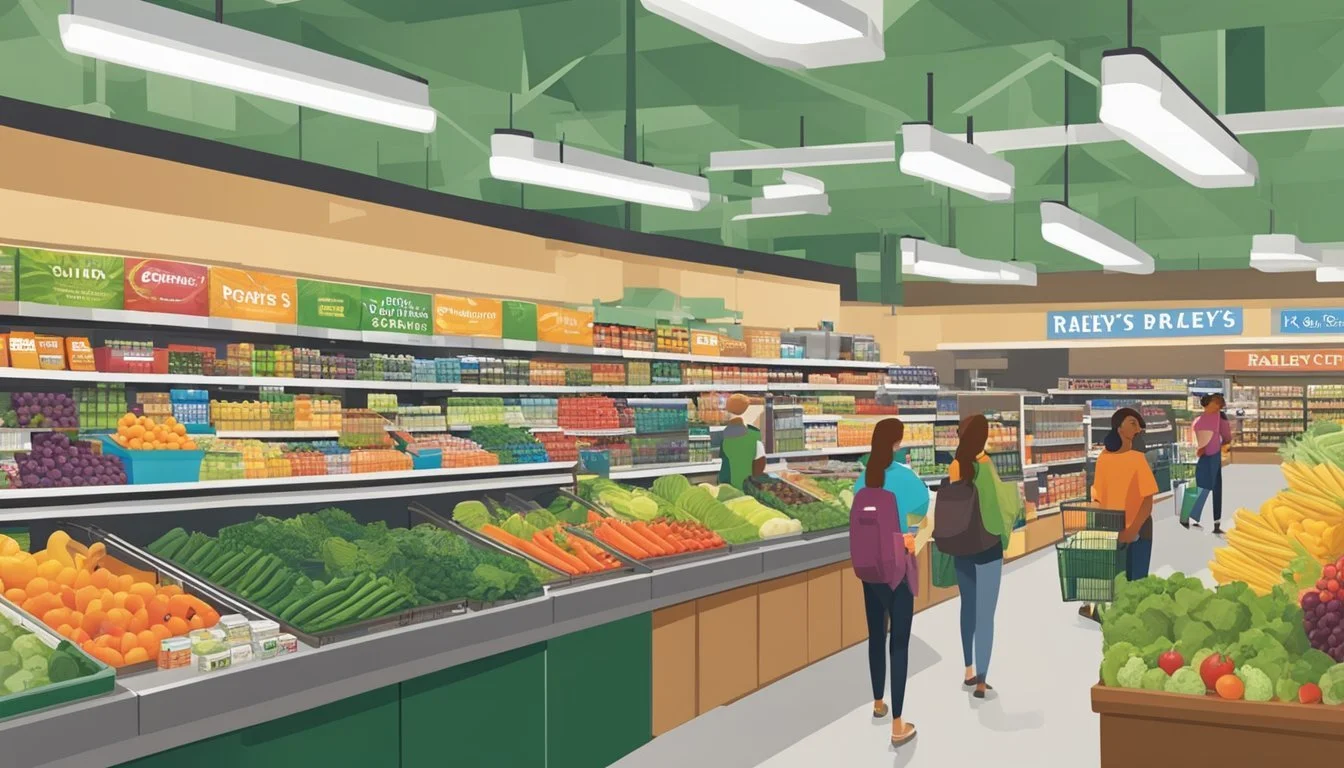Raley's vs Sam's Club
A Comprehensive Comparison of Price, Quality, and Selection
Choosing the right grocery store can significantly impact your shopping experience and budget. Raley's and Sam's Club are two popular options, each offering distinct advantages for consumers. While Raley's is known for its focus on quality and local produce, Sam's Club is renowned for its bulk purchasing options and competitive pricing.
For those seeking a traditional supermarket experience with a wide variety of fresh, locally-sourced products, Raley's may be the superior choice. The California-based chain emphasizes nutrition education and sustainability, partnering with local farmers to provide customers with high-quality produce and meats. Sam's Club, on the other hand, caters to shoppers looking to buy in bulk and save money on household essentials.
When it comes to specialty items like cakes, the two stores differ significantly. Raley's offers a more personalized bakery experience, while Sam's Club is known for its large, affordable sheet cakes ideal for big gatherings. Ultimately, the better grocery store depends on individual shopping preferences, budget constraints, and specific product needs.
Company Backgrounds
Raley's and Sam's Club represent two distinct approaches to grocery retail in the United States. Both have rich histories and significant market presence, shaping the shopping experiences of millions of customers across different regions.
History of Raley's
Raley's began its journey in 1935 when Thomas P. Raley opened his first store in Placerville, California. The company grew steadily, expanding its presence throughout Northern California. In the 1950s, Raley's operated nine stores with revenues exceeding $8 million.
The company made strategic acquisitions over the years. In 1991, Raley's purchased Bel Air Markets, followed by Nob Hill Foods in 1998. These moves strengthened its position in the California market.
Today, Raley's operates under The Raley's Companies umbrella, led by CEO Keith Knopf. The company continues to focus on providing quality products and emphasizing healthy eating options for its customers.
Sam's Club Origins
Sam's Club, a division of Walmart Inc., was founded in 1983 by Sam Walton. The first Sam's Club opened in Midwest City, Oklahoma, introducing the warehouse club concept to Walmart's retail portfolio.
The idea behind Sam's Club was to offer bulk quantities of products at discounted prices to small business owners and individual consumers. This model proved successful, leading to rapid expansion across the United States.
By the late 1980s, Sam's Club had become a major player in the wholesale club market, competing directly with Costco and other similar retailers. The company's growth continued through the 1990s and 2000s, solidifying its position as one of the largest membership-only retail warehouse clubs in North America.
Geographical Presence
Raley's primarily serves customers in Northern California and Nevada. The company has expanded its reach to include parts of Arizona and Washington state. Its focus remains on the Western United States, with a strong presence in urban and suburban areas.
Sam's Club, in contrast, has a much broader geographical footprint. With over 600 locations across the United States and Puerto Rico, Sam's Club maintains a significant presence in all 50 states. The company also operates internationally, with stores in countries like Mexico, Brazil, and China.
Both retailers have adapted their store formats and offerings to suit local preferences and market conditions in their respective regions. Raley's emphasizes a more personalized, community-oriented approach, while Sam's Club leverages its nationwide presence to offer consistent experiences across diverse locations.
Product Selection
Raley's and Sam's Club offer distinct product selections to cater to different shopping needs. Their inventories vary in range, quality, and specialization across key grocery categories.
Variety of Grocery Offerings
Raley's provides a comprehensive selection of everyday groceries, focusing on traditional supermarket fare. Their shelves stock national brands alongside private label options.
Sam's Club, as a wholesale club, emphasizes bulk purchases. They offer larger package sizes and multi-packs of popular items. This approach suits families and businesses looking to buy in volume.
Both stores carry staples like cereals, canned goods, and snacks. However, Sam's Club typically has fewer brand choices per category compared to Raley's more diverse offerings.
Quality of Fresh Produce
Raley's prides itself on its produce section, featuring a wide array of fruits and vegetables. They source locally when possible, emphasizing freshness and seasonality.
Sam's Club offers produce in larger quantities. While their selection may be more limited, they maintain competitive quality standards.
Raley's tends to have a broader selection of specialty and exotic produce items. Sam's Club focuses on high-turnover fruits and vegetables that appeal to a wide customer base.
Meat and Deli Options
Raley's meat department provides a range of cuts and options. They often feature specialty meats like grass-fed beef and free-range chicken. Their deli offers sliced meats, cheeses, and prepared salads.
Sam's Club's meat section focuses on bulk packaging. They sell large packs of popular cuts and offer value on items like rotisserie chickens. Their deli selection is more limited but includes bulk deli meats and cheeses.
Both stores maintain quality standards, but Raley's typically offers more variety in cuts and specialty options.
Organic and Health Food Choices
Raley's has embraced the organic and health food trend. They stock a variety of organic produce, meats, and packaged goods. Their selection includes specialty diet items for vegan, gluten-free, and other dietary needs.
Sam's Club has expanded its organic offerings in recent years. While not as extensive as Raley's, they now carry organic produce and packaged goods in bulk sizes. Their health food options tend to focus on popular trends rather than niche dietary needs.
Raley's provides more choices for those seeking specific health-oriented products. Sam's Club offers value on mainstream organic items.
Bakery and Prepared Foods
Raley's bakery department produces a variety of fresh breads, cakes, and pastries daily. They often feature artisanal and specialty items alongside traditional baked goods. Their prepared foods section offers hot meals, sandwiches, and salads for quick dining options.
Sam's Club's bakery focuses on larger format items like sheet cakes and bulk packs of rolls. They're known for their oversized muffins and cookies. Their prepared foods section is more limited but includes rotisserie chickens and take-and-bake pizzas.
Raley's typically offers more variety and customization in bakery items. Sam's Club provides value on larger portions suitable for gatherings or families.
Pricing and Membership
Sam's Club and Raley's offer distinct pricing models and membership structures. Sam's Club operates as a membership-based warehouse club, while Raley's is a traditional grocery store open to all shoppers.
Comparison of Costs
Sam's Club provides bulk quantities at discounted prices. Members can save 10-30% compared to regular retail on many items. Raley's offers competitive prices on groceries without requiring a membership. Sam's Club excels in non-perishables and household goods pricing. Raley's often has better deals on fresh produce and specialty items.
Sam's Club charges an annual membership fee, starting at $50 for a basic Club membership. Raley's has no membership fee. For frequent bulk shoppers, Sam's Club's savings can outweigh the membership cost. Occasional shoppers may find Raley's more cost-effective.
Membership Benefits
Sam's Club offers two membership tiers: Club and Plus. Club members ($50/year) get access to all locations and online shopping. Plus members ($110/year) enjoy additional perks like free shipping, early shopping hours, and 2% cash back on qualifying purchases.
Raley's has a free loyalty program called Something Extra. Members earn points on purchases and receive personalized deals. The program includes digital coupons and fuel rewards at participating stations.
Special Discounts and Offers
Sam's Club runs regular Instant Savings events, offering extra discounts on select items for members. They also provide exclusive member-only sales throughout the year. The Sam's Club credit card offers additional cash back on purchases.
Raley's frequently features weekly specials and digital coupons through their Something Extra program. They offer senior discounts on specific days and military discounts year-round. Raley's also has seasonal promotions and occasional storewide sales events.
Both stores price-match competitors' advertised deals, ensuring customers get the best value. Sam's Club extends this to online retailers, while Raley's typically focuses on local competitors.
Shopping Experience
Raley's and Sam's Club offer distinct shopping experiences tailored to different customer needs. Their approaches to store layout, customer service, atmosphere, and crowd management shape how shoppers interact with each retailer.
Convenience of Store Layout
Raley's prioritizes an intuitive layout for efficient grocery shopping. Products are organized logically, with clear signage guiding customers. Fresh produce, deli, and bakery sections are typically near the entrance, encouraging healthy choices.
Sam's Club utilizes a warehouse-style layout. Wide aisles accommodate bulk purchases and pallet displays. The store's design facilitates browsing, with popular items strategically placed to catch shoppers' attention.
Both stores group similar items together, but Sam's Club's larger footprint can mean longer walks between departments.
Customer Service and Support
Raley's emphasizes personalized service. Staff members are often readily available to assist with product inquiries or locate items. The stores typically have dedicated customer service counters for returns, special orders, and general inquiries.
Sam's Club offers a more self-service oriented experience. Employees are present but less numerous relative to the store size. Membership services are available near the entrance for account-related issues.
Both retailers provide checkout assistance, though Sam's Club encourages use of self-checkout for faster processing of large orders.
Shopping Atmosphere
Raley's cultivates a welcoming, community-focused atmosphere. Stores often feature warm lighting, polished displays, and a more intimate feel. The emphasis is on creating a pleasant environment for regular grocery shopping.
Sam's Club embraces its warehouse roots. The atmosphere is utilitarian, with high ceilings, concrete floors, and bulk displays. The focus is on value and quantity rather than ambiance.
Music choices and store temperature can impact the shopping experience. Raley's tends to have softer background music, while Sam's Club may have a more energetic playlist.
Crowd Management
Raley's stores are typically smaller, allowing for easier navigation even during busy periods. Multiple checkout lanes help manage customer flow efficiently.
Sam's Club can become crowded, especially on weekends. The retailer uses strategies like wide aisles and multiple entrances/exits to alleviate congestion. During peak times, staff members often direct traffic at checkout.
Both stores implement queue management systems. Raley's may open additional lanes as needed, while Sam's Club utilizes a single-line system for fairness.
Self-checkout options in both stores help reduce wait times. Sam's Club also offers a scan-and-go app for members to bypass checkout lines entirely.
Sustainability and Ethics
Raley's and Sam's Club have distinct approaches to sustainability and ethical practices. Both retailers implement eco-friendly initiatives and animal welfare standards, but their specific efforts and focus areas differ.
Eco-Friendly Practices
Raley's emphasizes sustainable operations and community engagement. The company released its first annual Impact Report in 2020, highlighting efforts to reduce environmental impact. Raley's focuses on organic and locally-sourced products, promoting sustainable agriculture practices.
Sam's Club, as part of Walmart, participates in broader sustainability initiatives. The retailer introduced the "Collab for Cold" campaign with Tide, encouraging customers to wash clothes in cold water to save energy. This initiative aims to reduce energy consumption and extend clothing lifespan.
Sam's Club also partners with Denali to repurpose food waste into biosolids for farming applications. This process supports long-term sustainability goals by finding new uses for unsalable items.
Animal Welfare Standards
Raley's prioritizes animal welfare in its product sourcing. The company offers a range of organic and antibiotic-free meat options. Raley's works with suppliers to ensure humane treatment of animals and promotes transparency in its supply chain.
Sam's Club adheres to Walmart's animal welfare policies. The retailer commits to sourcing cage-free eggs and gestation crate-free pork. Sam's Club also offers organic and antibiotic-free meat products to meet customer demands for ethical protein sources.
Both retailers provide options for customers concerned about animal welfare. They stock products from suppliers who avoid the use of growth hormones and unnecessary antibiotics in livestock.
Consumer Perception and Brand Reputation
Raley's and Sam's Club have distinct consumer perceptions and brand reputations in the grocery market. Their public profiles and consumer reports offer insights into how shoppers view these retailers.
Public and Market Presenter's Profile
Raley's positions itself as a regional, family-owned supermarket chain focused on quality and community engagement. The company emphasizes fresh produce, organic options, and personalized customer service. Raley's has cultivated a reputation for supporting local farmers and producers.
Sam's Club, a division of Walmart, presents itself as a membership-based warehouse club offering bulk purchases at discounted prices. The brand is known for its wide selection of products, from groceries to electronics. Sam's Club targets both individual consumers and small businesses looking for value.
Third-Party Consumer Reports
Consumer Reports ranks grocery stores based on various factors, including price, quality, and customer satisfaction. Sam's Club often scores well in price comparisons, especially for bulk purchases. The store's private-label Member's Mark products receive positive reviews for quality and value.
Raley's is not as widely covered in national consumer reports due to its regional presence. However, local surveys and customer feedback often praise Raley's for its fresh produce selection and customer service. The company's commitment to sustainability and healthy eating initiatives has also been recognized in industry publications.
Both stores have loyal customer bases, with Sam's Club members appreciating the cost savings and Raley's shoppers valuing the curated product selection and shopping experience.
Additional Services and Initiatives
Raley's and Sam's Club offer diverse services beyond groceries, enhancing customer experiences. Both chains also engage in community initiatives, showcasing their commitment to social responsibility.
In-Store Services
Raley's provides pharmacy services, including vaccinations and health screenings. The chain's O-N-E Market concept focuses on organic, natural, and nutritious products. Raley's also offers catering and floral services.
Sam's Club features optical centers, hearing aid services, and tire centers. The warehouse retailer provides bulk fuel options at discounted prices. Sam's Club's Scan & Go app allows customers to skip checkout lines.
Both stores offer online ordering with pickup and delivery options. Raley's Something Extra loyalty program provides personalized deals. Sam's Club membership includes benefits like early shopping hours and exclusive savings.
Community and Social Responsibility
Raley's Taste and Teach program educates students on nutrition, sustainability, and agriculture. The chain partners with local food banks to reduce food waste and fight hunger. Raley's emphasizes sourcing from local producers to support regional economies.
Sam's Club supports small businesses through targeted services and bulk purchasing options. The retailer participates in disaster relief efforts, providing essential supplies to affected communities.
Both chains have implemented sustainability initiatives. Raley's focuses on reducing plastic waste and promoting reusable bags. Sam's Club has invested in energy-efficient store designs and renewable energy sources.
Adaptation and Future Trends
Raley's and Sam's Club are evolving their strategies to meet changing consumer demands and technological advancements. Both retailers are embracing innovation and adapting to market shifts in unique ways.
Response to Market Changes
Raley's has focused on health-conscious consumers by expanding its O-N-E Market concept. These stores offer organic, natural, and nutritious products, catering to growing wellness trends. Sam's Club, on the other hand, has emphasized bulk purchasing and value pricing to attract cost-conscious shoppers.
During the COVID-19 pandemic, both retailers rapidly expanded their e-commerce capabilities. Raley's enhanced its curbside pickup services, while Sam's Club introduced Scan & Go technology for contactless shopping.
In Canada, Raley's doesn't have a presence, but Sam's Club's parent company Walmart has been expanding its grocery offerings to compete with local chains.
Technological Advancements in Retail
Raley's has invested in data analytics to personalize customer experiences and optimize inventory management. The company uses AI-driven systems to predict demand and reduce food waste.
Sam's Club has rolled out innovative technologies like computer vision and AI to improve operational efficiency. Their "Ask Sam" voice assistant helps employees quickly access information and better serve customers.
Both retailers have enhanced their mobile apps, offering features like digital coupons, personalized recommendations, and easy reordering of frequently purchased items.
Prospects and Forecasts
Industry experts predict continued growth in online grocery shopping. Raley's is likely to expand its O-N-E Market concept to more locations, focusing on curated, high-quality product selections.
Sam's Club is expected to leverage its warehouse model to compete on price, potentially introducing more private-label products to increase margins. The company may also explore smaller-format stores in urban areas.
Both retailers will likely invest in automation technologies for their distribution centers and in-store operations. This could include robotics for order fulfillment and AI-powered inventory management systems.
As sustainability becomes increasingly important to consumers, Raley's and Sam's Club may introduce more eco-friendly packaging and expand their locally-sourced product offerings.
Conclusion
Raley's and Sam's Club cater to different grocery shopping needs. Raley's focuses on quality fresh produce and local products, appealing to those seeking a traditional supermarket experience.
Sam's Club offers bulk purchases and members-only deals, attracting customers looking for savings on large quantities. The choice between the two depends on individual preferences and shopping habits.
Raley's provides a more personalized shopping experience with a wider variety of specialty items. Sam's Club excels in offering competitive prices on bulk goods and exclusive store brands.
Both retailers have their strengths. Raley's stands out for its community involvement and focus on fresh, local products. Sam's Club shines in its wholesale model and membership perks.
Ultimately, the better option varies based on household size, budget constraints, and specific product needs. Some shoppers may find value in utilizing both stores for different aspects of their grocery shopping.


